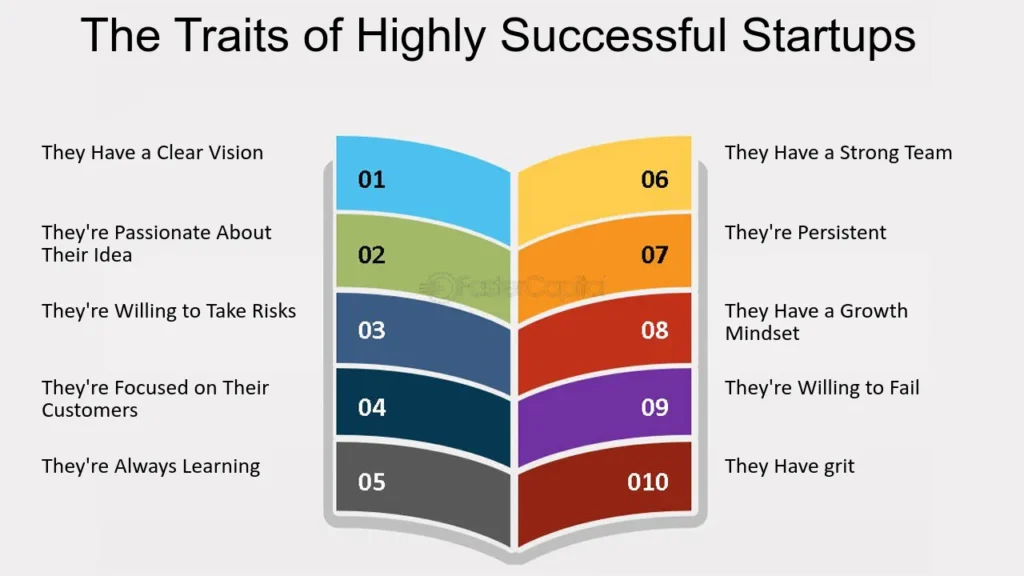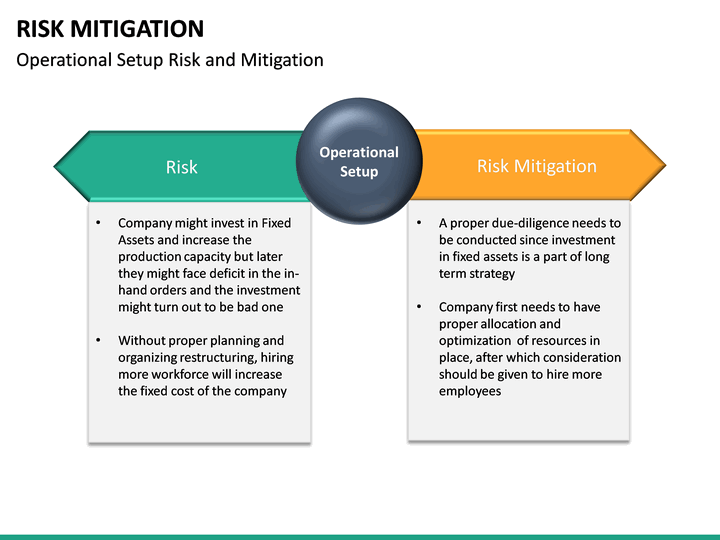Successful startups are more than just groundbreaking ideas. They encompass a blend of attributes that drive their triumph. Understanding the common traits prevalent among these thriving ventures is crucial for aspiring entrepreneurs seeking their own success stories.
Table of contents
Vision

A defining trait among successful startups is a crystal-clear vision. Vision sets the direction, serving as a guiding light even during turbulent times. It fuels determination, inspires teams, and attracts investors who align with the startup’s purpose.
Innovation
Innovation is the heartbeat of a successful startup. Constantly evolving and adapting to the changing market landscape, successful ventures embrace innovation fearlessly.
They seek inventive solutions, disrupt traditional norms, and remain agile in their approach.
| Aspect | Explanation |
| Importance | Innovation serves as the lifeblood of a thriving startup, enabling it to stay relevant and competitive. |
| Adaptability | Successful ventures embrace change, evolving their strategies to align with evolving market conditions. |
| Creativity | They actively seek novel and inventive solutions, encouraging a culture that fosters creative thinking. |
| Disruption | Innovation enables startups to challenge traditional norms and revolutionize industries with new ideas. |
| Agility | Remaining nimble allows startups to swiftly pivot and adapt, responding effectively to market dynamics. |
| Risk-taking | Fearlessly exploring uncharted territories, taking calculated risks, and learning from failures is key. |
| Customer Focus | Innovation is directed towards meeting customer needs, enhancing experiences, and delivering value. |
Team
Behind every successful startup is a robust, cohesive team. Collaborative efforts, diverse skill sets, and shared goals define these teams. Startups prioritize hiring individuals who not only excel in their roles but also contribute synergistically to the collective mission.
Market Understanding

Understanding the pulse of the market is pivotal. Successful startups invest time and resources in comprehending customer needs, pain points, and desires. This insight enables them to tailor their offerings to meet market demands effectively.
Customer Needs Analysis: Conduct research to identify what customers require or desire from products/services.
Pain Points Identification: Pinpoint specific challenges or problems faced by customers in their daily lives or existing solutions.
Market Trends Observation: Keep track of emerging trends, consumer behavior shifts, and industry developments.
Competitor Analysis: Study competitor strategies, strengths, weaknesses, and customer feedback to understand market positioning.
Feedback Collection: Gather feedback through surveys, focus groups, or online reviews to gauge customer satisfaction and preferences.
Resilience
Resilience is a fundamental trait shared by thriving startups. They view failures as stepping stones, learning from setbacks, and pivoting strategies when required. This resilient mindset enables them to weather storms and emerge stronger.
Execution

Ideas alone don’t guarantee success; execution is key. Successful startups focus on turning concepts into reality swiftly and efficiently. They prioritize action, staying nimble and responsive to market shifts.
Flexibility
Startups navigate uncertainties with flexibility. They remain open to tweaking strategies, changing course when needed, without losing sight of their core objectives.
, consistently seeking feedback, and iterating their offerings to meet evolving customer needs.
Adaptability
Adaptability is ingrained in the DNA of successful startups. They embrace change, pivot swiftly, and recalibrate strategies based on market dynamics and emerging trends.
Risk-Taking

Calculated risk-taking is another shared trait. Successful startups understand the importance of taking risks but do so after thorough evaluation, maximizing opportunities while minimizing potential downsides. As startups grow, scaling becomes inevitable. Successful ventures have well-thought-out scaling strategies, ensuring sustainable growth without compromising quality.
Conclusion
In summary, successful startups embody a combination of visionary leadership, a culture of innovation, resilient mindsets, and a relentless drive to meet customer needs. Embracing these traits can pave the way for budding entrepreneurs to chart their path to success.
Readmore:
What Type of Leadership Style Impacts Your Business Goals
What is the Difference between Entrepreneurship and Technopreneurship
Understanding Entrepreneurship and Project Management
Enterprise and Entrepreneurship: The Difference
FAQs
Not necessarily. While many successful startups disrupt industries, others focus on refining existing models or addressing niche markets effectively.
Failure often serves as a learning opportunity for startups. It’s not a prerequisite, but the ability to learn from failures can contribute to eventual success.
While funding can provide resources, a startup’s success relies on various factors like innovation, execution, and market fit, not solely on the amount of funding secured.
A clear vision acts as a guiding force for startups. While some may stumble upon success without a defined vision, it significantly enhances the chances of long-term success.

